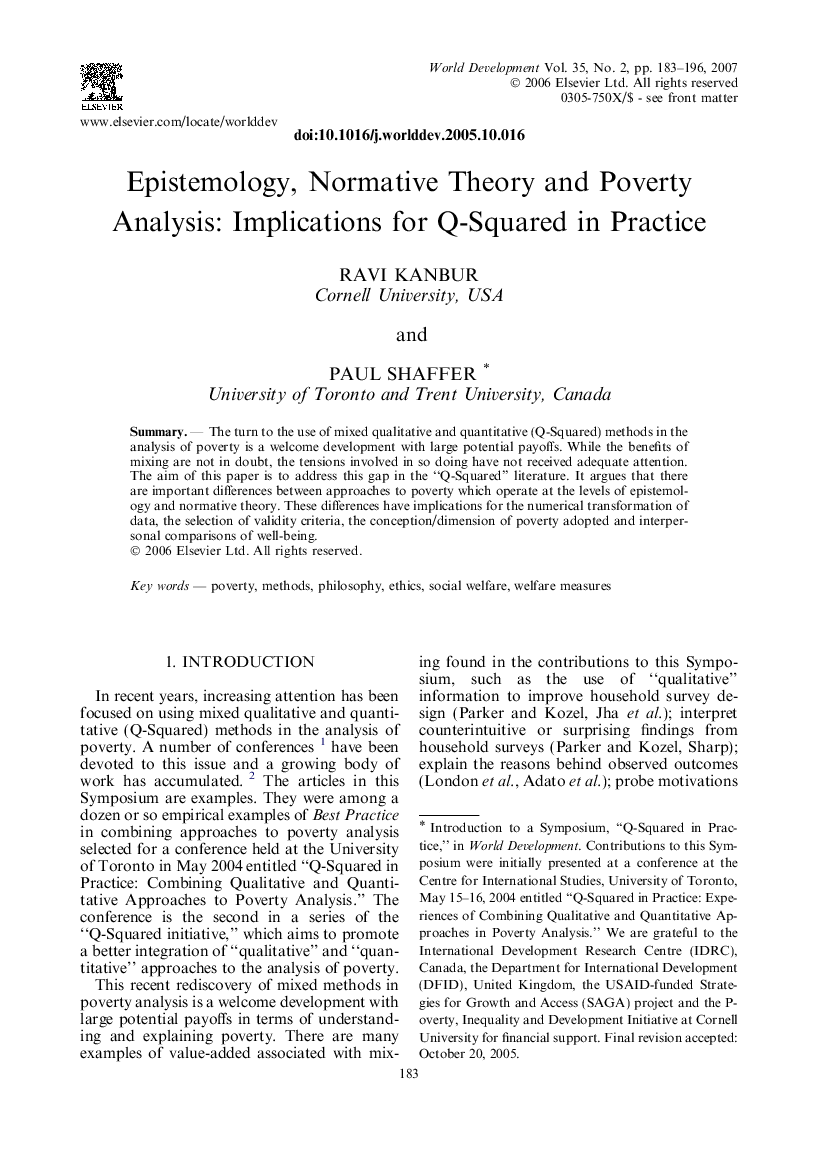| کد مقاله | کد نشریه | سال انتشار | مقاله انگلیسی | نسخه تمام متن |
|---|---|---|---|---|
| 991830 | 935652 | 2007 | 14 صفحه PDF | دانلود رایگان |
عنوان انگلیسی مقاله ISI
Epistemology, Normative Theory and Poverty Analysis: Implications for Q-Squared in Practice
دانلود مقاله + سفارش ترجمه
دانلود مقاله ISI انگلیسی
رایگان برای ایرانیان
کلمات کلیدی
موضوعات مرتبط
علوم انسانی و اجتماعی
اقتصاد، اقتصادسنجی و امور مالی
اقتصاد و اقتصادسنجی
پیش نمایش صفحه اول مقاله

چکیده انگلیسی
SummaryThe turn to the use of mixed qualitative and quantitative (Q-Squared) methods in the analysis of poverty is a welcome development with large potential payoffs. While the benefits of mixing are not in doubt, the tensions involved in so doing have not received adequate attention. The aim of this paper is to address this gap in the “Q-Squared” literature. It argues that there are important differences between approaches to poverty which operate at the levels of epistemology and normative theory. These differences have implications for the numerical transformation of data, the selection of validity criteria, the conception/dimension of poverty adopted and interpersonal comparisons of well-being.
ناشر
Database: Elsevier - ScienceDirect (ساینس دایرکت)
Journal: World Development - Volume 35, Issue 2, February 2007, Pages 183–196
Journal: World Development - Volume 35, Issue 2, February 2007, Pages 183–196
نویسندگان
Ravi Kanbur, Paul Shaffer,